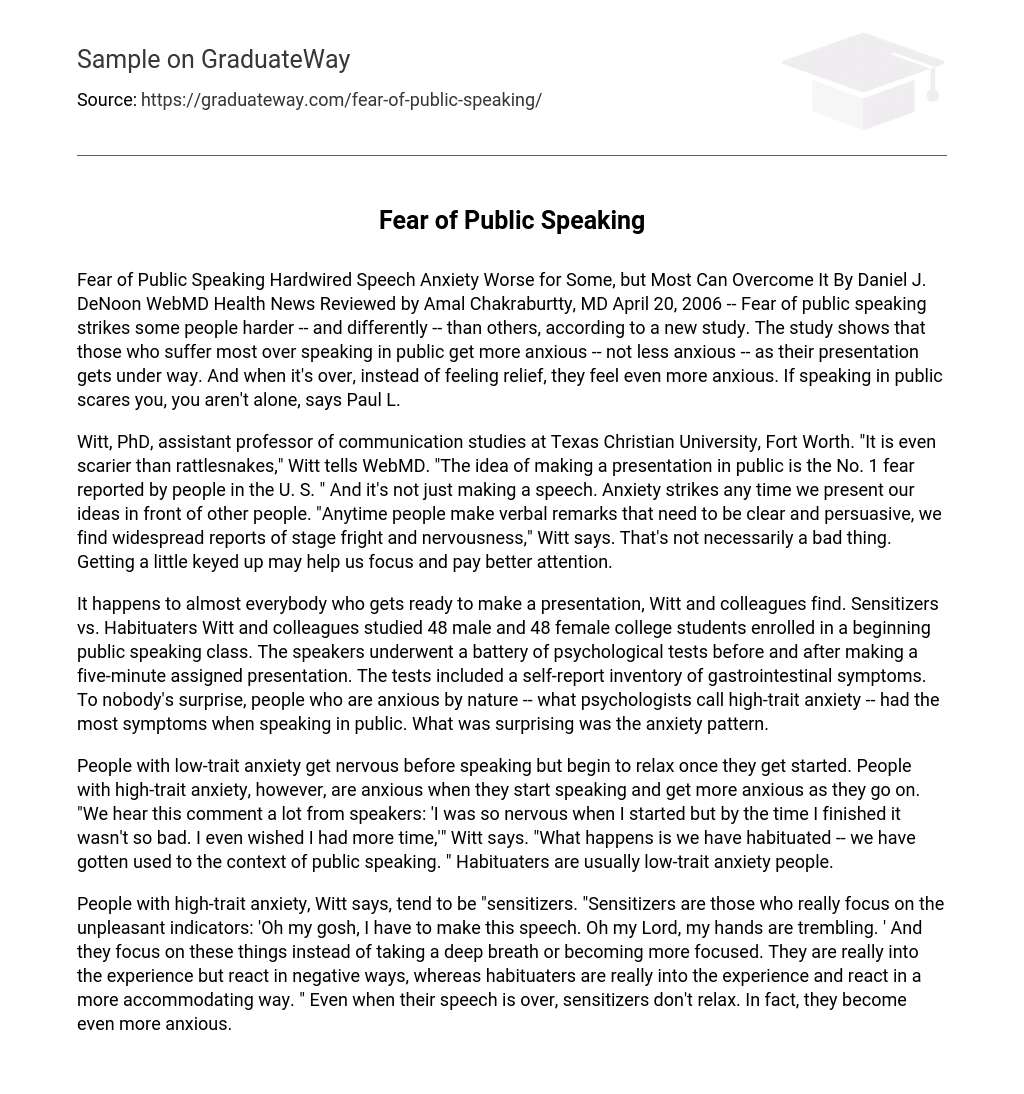Fear of public speaking strikes some people harder – and differently – than others, according to a new study. The study shows that those who suffer most over speaking in public get more anxious – not less anxious – as their presentation gets under way. And when it’s over, instead of feeling relief, they feel even more anxious. If speaking in public scares you, you aren’t alone, says Paul L.
Witt, PhD, assistant professor of communication studies at Texas Christian University, Fort Worth. “It is even scarier than rattlesnakes,” Witt tells WebMD. “The idea of making a presentation in public is the No. 1 fear reported by people in the U. S. ” And it’s not just making a speech. Anxiety strikes any time we present our ideas in front of other people. “Anytime people make verbal remarks that need to be clear and persuasive, we find widespread reports of stage fright and nervousness,” Witt says. That’s not necessarily a bad thing. Getting a little keyed up may help us focus and pay better attention.
It happens to almost everybody who gets ready to make a presentation, Witt and colleagues find. Sensitizers vs. Habituaters Witt and colleagues studied 48 male and 48 female college students enrolled in a beginning public speaking class. The speakers underwent a battery of psychological tests before and after making a five-minute assigned presentation. The tests included a self-report inventory of gastrointestinal symptoms. To nobody’s surprise, people who are anxious by nature – what psychologists call high-trait anxiety – had the most symptoms when speaking in public. What was surprising was the anxiety pattern.
People with low-trait anxiety get nervous before speaking but begin to relax once they get started. People with high-trait anxiety, however, are anxious when they start speaking and get more anxious as they go on. “We hear this comment a lot from speakers: ‘I was so nervous when I started but by the time I finished it wasn’t so bad. I even wished I had more time,'” Witt says. “What happens is we have habituated – we have gotten used to the context of public speaking. ” Habituaters are usually low-trait anxiety people.
People with high-trait anxiety, Witt says, tend to be “sensitizers. “Sensitizers are those who really focus on the unpleasant indicators: ‘Oh my gosh, I have to make this speech. Oh my Lord, my hands are trembling. ‘ And they focus on these things instead of taking a deep breath or becoming more focused. They are really into the experience but react in negative ways, whereas habituaters are really into the experience and react in a more accommodating way. ” Even when their speech is over, sensitizers don’t relax. In fact, they become even more anxious.





